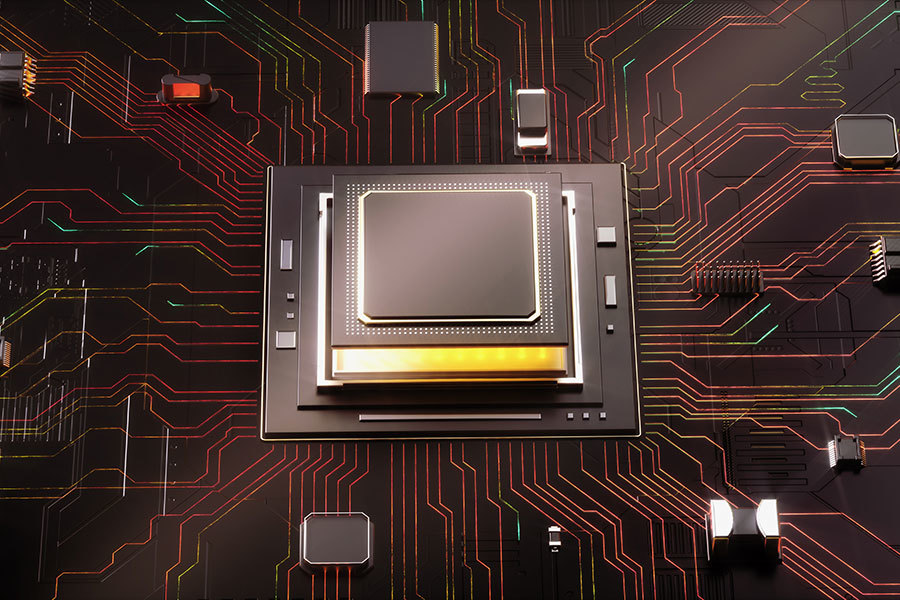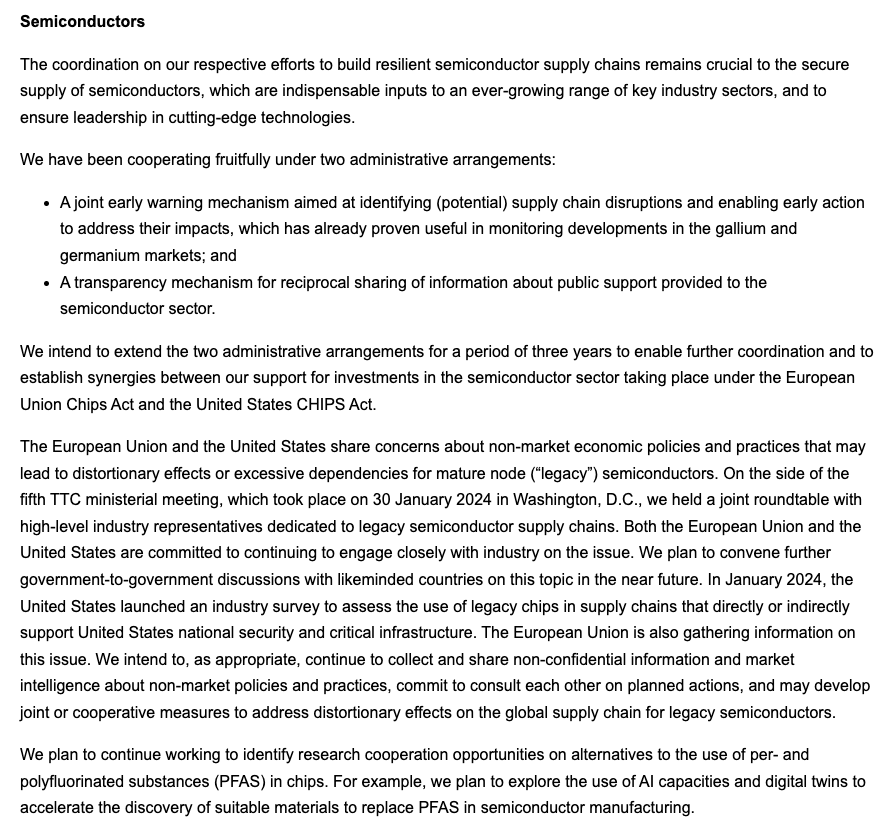The US Europe semiconductor agreement is extended for three years and will jointly investigate mature chips
The United States and the European Union have pledged to extend the cooperation period by three years to identify interference in the semiconductor industry, especially targeting mainstream "traditional" chips. The United States and the European Union have concluded a two-day Trade and Technology Council meeting and issued a 12 page joint statement on the results of the meeting. Margrethe Vestager, Vice President of the European Commission responsible for EU technology policy, stated that the EU and the United States are taking "the next steps" regarding traditional semiconductors.
The European Union and the United States stated in their statement that coordinating their efforts to establish flexible semiconductor supply chains remains crucial for the secure supply of semiconductors. Semiconductors are an indispensable investment in the growing key industry sector and ensure a leading position in cutting-edge technology. The two sides have had effective cooperation under two administrative arrangements: a joint early warning mechanism aimed at identifying (potential) supply chain disruptions and taking early action to address their impacts, which has proven to be very useful in monitoring the development of the gallium and germanium markets; Establish a transparent mechanism for sharing information on public support provided to the semiconductor industry with each other.

Both the European Union and the United States are concerned about non market economy policies and practices that may lead to distortion effects or excessive reliance on mature node ("traditional") semiconductors. In January 2024, the United States launched an industry survey to assess the use of traditional chips in supply chains that directly or indirectly support national security and critical infrastructure. The EU is also collecting information on this issue. Both parties intend to continue to collect and share non confidential information and market intelligence on non market policies and practices as appropriate, commit to mutual consultation on planned actions, and may develop joint or cooperative measures to address the distorted impact of traditional semiconductor supply chains on the global market.
US Secretary of Commerce Gina Raymond previously stated that China is producing about 60% of traditional chips for use in automobiles, household appliances, and medical devices, and will continue to do so in the coming years. She said that the US Department of Commerce has launched a market evaluation survey and added that the EU will soon conduct a similar survey, and the two countries will share their results.
The European Union and the United States have also pledged to collaborate on research to find alternatives to perfluorinated and perfluoroalkyl substances (PFAS) in chips. Both sides also stated, "For example, we plan to explore the use of artificial intelligence (AI) capabilities and digital twins to accelerate the discovery of suitable materials to replace PFAS in semiconductor manufacturing.". These "permanent chemicals" are not easily decomposed, and research has shown that they can pose a threat to human health.
US Secretary of Commerce Gina Raymond previously stated that China is producing about 60% of traditional chips for use in automobiles, household appliances, and medical devices, and will continue to do so in the coming years. She said that the US Department of Commerce has launched a market evaluation survey and added that the EU will soon conduct a similar survey, and the two countries will share their results.
The European Union and the United States have also pledged to collaborate on research to find alternatives to perfluorinated and perfluoroalkyl substances (PFAS) in chips. Both sides also stated, "For example, we plan to explore the use of artificial intelligence (AI) capabilities and digital twins to accelerate the discovery of suitable materials to replace PFAS in semiconductor manufacturing.". These "permanent chemicals" are not easily decomposed, and research has shown that they can pose a threat to human health.